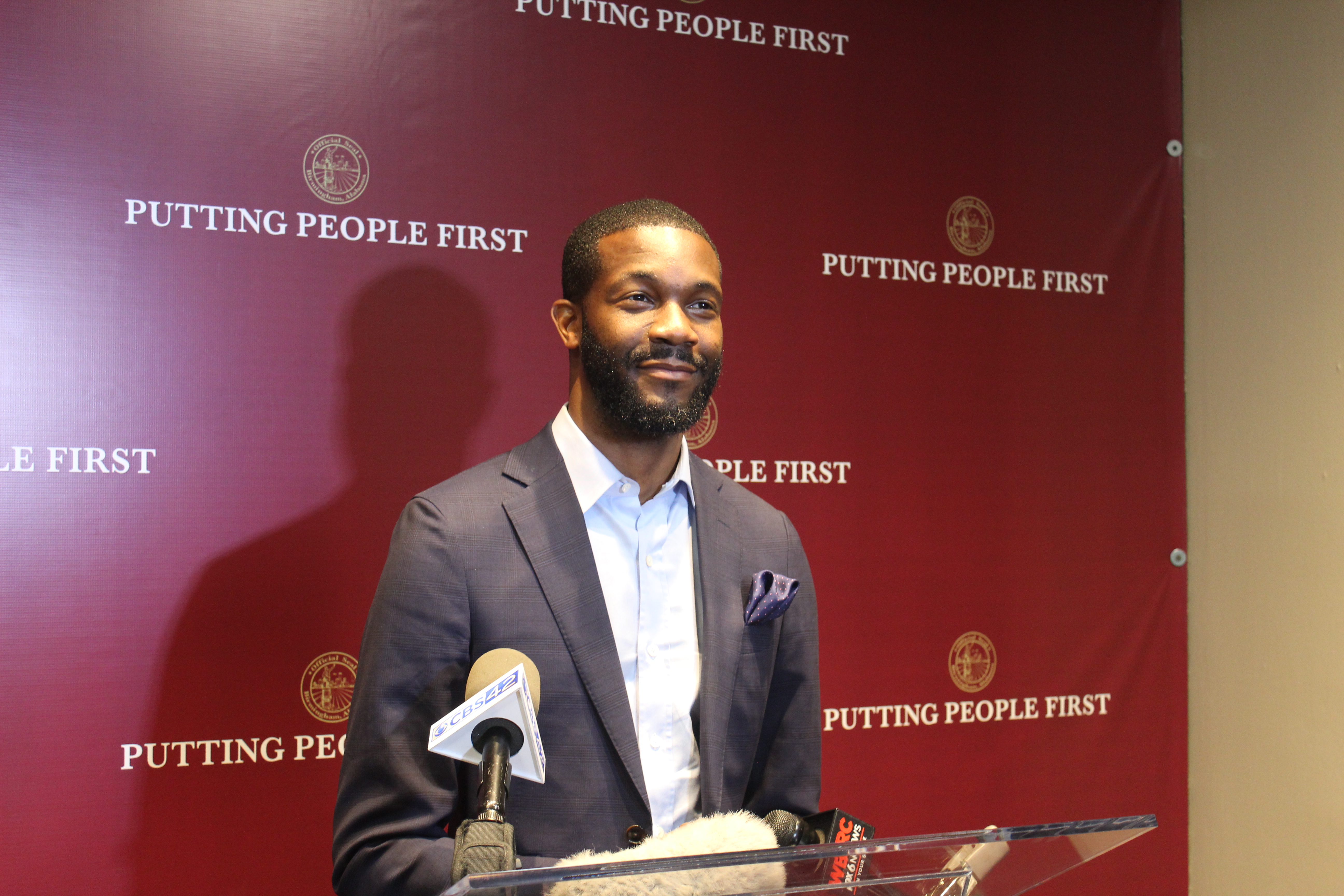By Ariel Worthy
The Birmingham Times
For the first time since 2014 and only the fourth time since 2006, the Birmingham City Council approved an operating budget before the start of the July 1 fiscal year.
The City Council on Tuesday voted unanimously to approve the $436 million spending plan which Mayor Randall Woodfin said falls in line with “our core values and commitment to neighborhood revitalization.”
“A lot of this budget reflects our number one priority which is neighborhood revitalization,” he said during a press conference after the council meeting. “So, there is more money for weed abatement and demolition as far as putting money on the ground in neighborhoods.”
The council voted 8-0 to approve the budget. District 1 Councilor Lashunda Scales was not present.
Council President Valerie Abbott said she was pleased the budget was passed in a timely fashion and is aware that citizens are pleased when the two branches of government work together.
“Although no one got everything they wanted I think what we did get was funding for all of the departments that serve the citizens on a daily basis,” Abbott said.
Highlights in the budget include:
- 1 percent cost of living adjustment for all city employees
- Longevity pay for city employees
- $2,000 in allocations per Neighborhood Association
- Weed Abatement, $1.2 million
- Demolition, $2 million
- Community Development Block Grant, $8.3 million
- Transit, $10 million
- Birmingham City Schools, $3 million
Abbott said councilors and mayor’s staff met repeatedly to get questions answered.
“Mayor Woodfin was cooperative and sent us answers to the questions we had. We may not have liked the answers, but we got answers. I think communication is always the key to almost everything,” she said.
The mayor said he would have liked additional money for street paving.
“I don’t see that as a loss but a missed opportunity. We’ve gotten to a point in this budget where we did everything we could to find money for street paving,” he said. “So, we’re going to continue to be aggressive on the revenue side.”
Abbott said the council looks forward to money for the streets.
“Commitments are commitments and one of the big commitments that we made to residents was the five-year paving plan and that’s the one thing we didn’t follow through with this year . . . but the mayor has committed that next year we will be able to get back on track,” she said.
A major change in the budget was how the city it spends economic development dollars which now has a focus on “increasing our workforce and making sure we expand supporting small business,” Woodfin said.
He has announced the establishment of the Department of Innovation and Economic Opportunity, formerly the Office of Economic Development. In addition, the Department of Innovation and Economic Opportunity will oversee a new request for proposal process to make funding of economic development partners “more transparent, performance-driven and inclusive,” he said.
“What we’re doing around economic development is going to be a game changer for the things people want to see in these small business districts,” he said. “We have 20-plus of them (small business districts) across the city. It’s time to spread some of that support to Ensley, Five Points West, North Birmingham and other areas of town where our small business areas have been neglected and/or forgotten.”
Now that the budget process is over, what’s next? Finding new ways to generate more revenue for the city, the mayor said.
“The more revenue we can generate, the more issues we can tackle and solve.”




